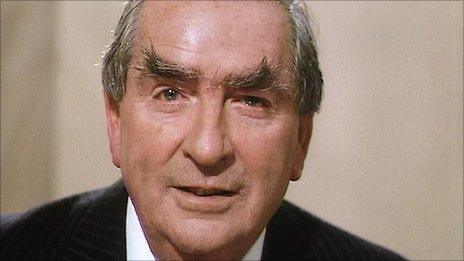Denis Healey: A life in pictures
- Published
Denis Healey, one of the key figures in post-war British politics, has died aged 98. He was nationally famous for decades and held several leading roles for Labour, most notably chancellor of the Exchequer.
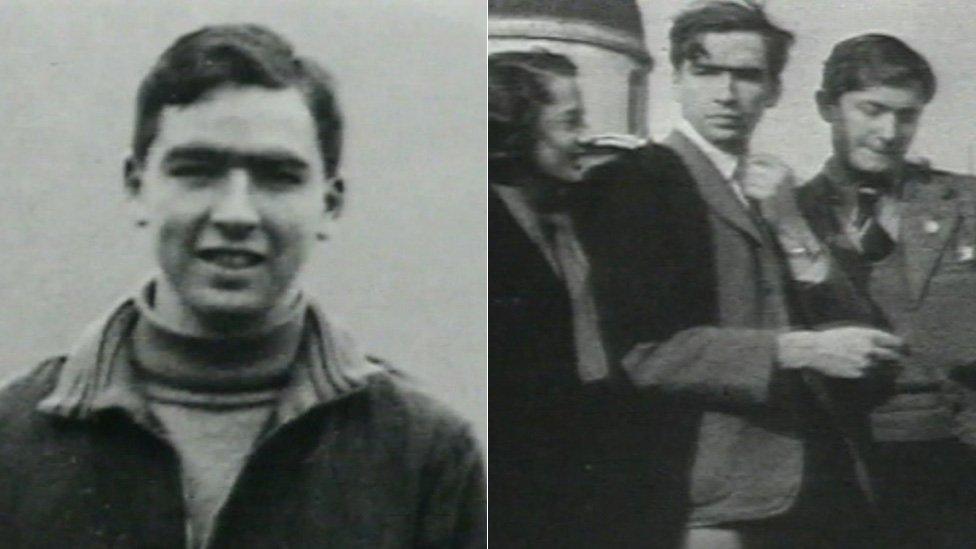
Born in south London on 30 August, 1917, Denis Winston Healey moved to Yorkshire with his family at the age of five. Educated at Bradford Grammar School, he went on to gain a Double First in Classics at Oxford, where he would meet his future wife, Edna.
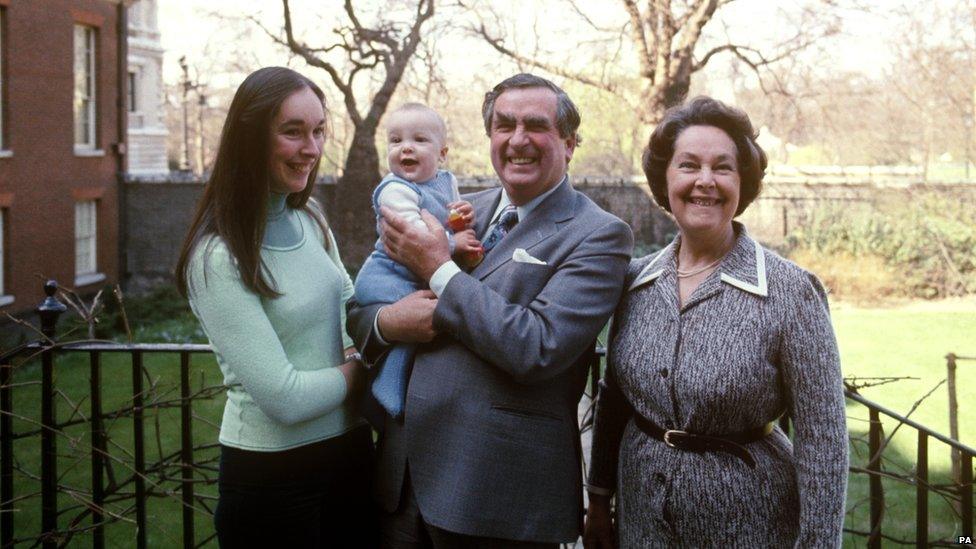
During World War II, a five-year stint in the military saw Healey serve in operations in North Africa and Italy. On his return he married Edna, an author and film maker. The couple - pictured above with their daughter and grandson - had three children.
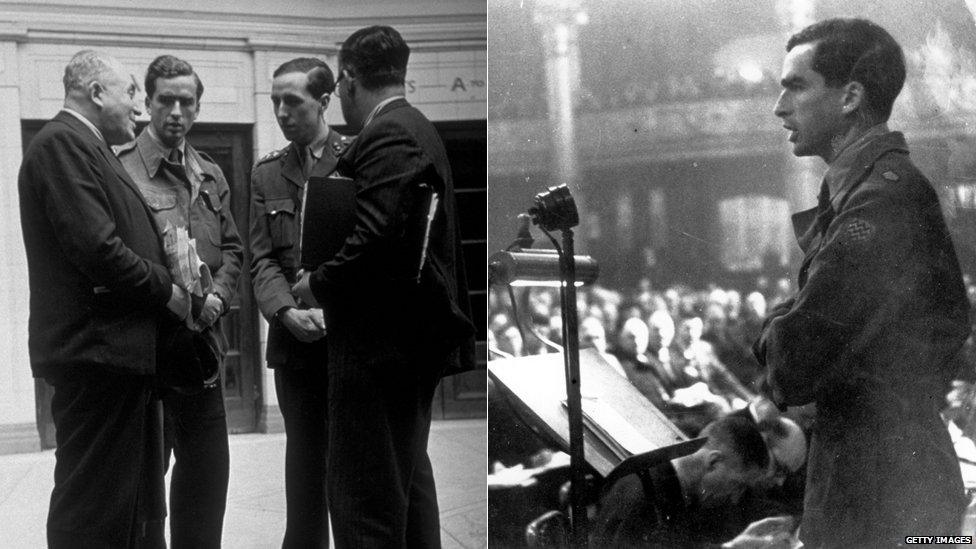
Healey began his political life as a communist, but after joining the Labour Party in 1945, his Marxist sympathies faded under the influence of cabinet minister Ernest Bevin. He addressed the party at that year's conference, kitted out in his military apparel.
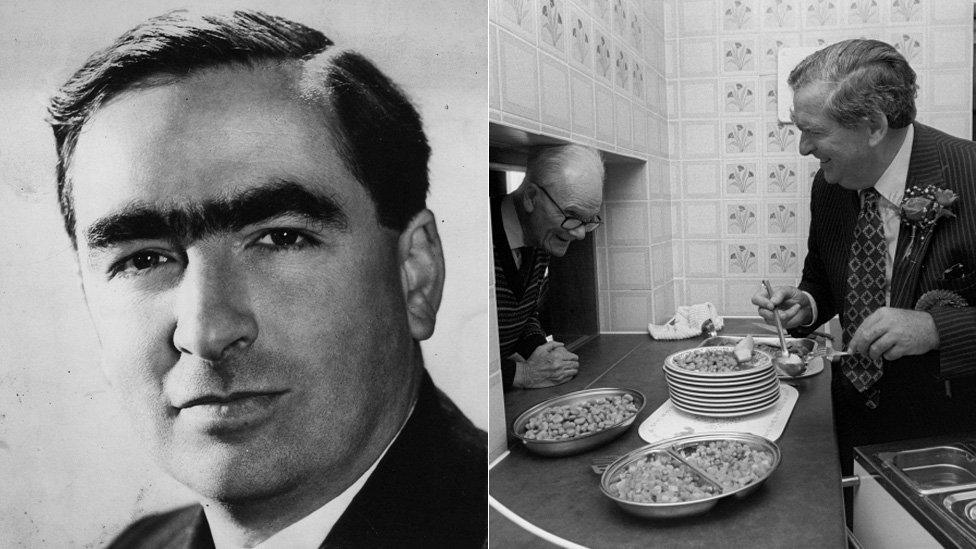
Following an unsuccessful run for Parliament in 1945, Healey fared better some seven years later when he was elected as MP for Leeds East, in a by-election. His party in opposition at the time, he was appointed to the shadow cabinet.
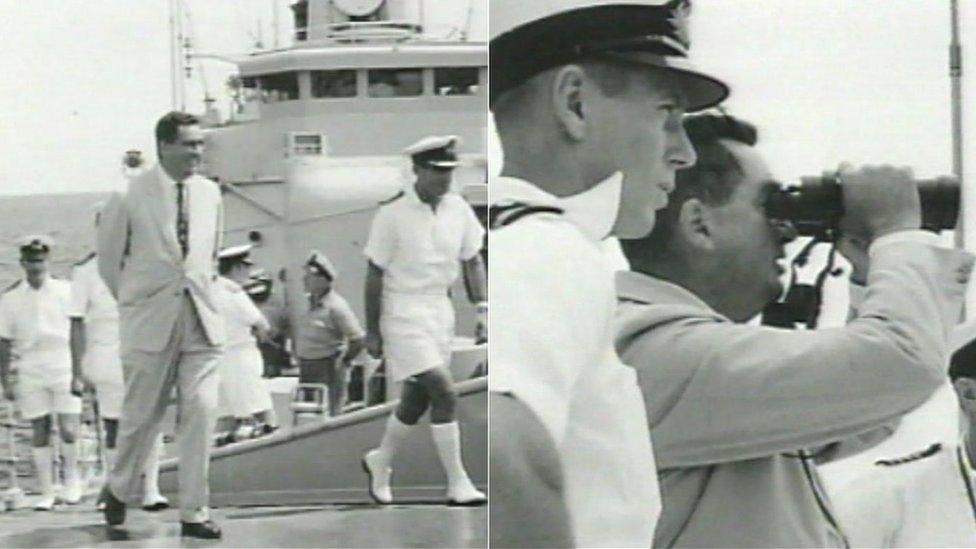
When Labour entered government in 1964, Healey served as defence secretary in Harold Wilson's cabinet and presided over Britain's withdrawal from East of Suez and a reorganisation of the Territorial Army.
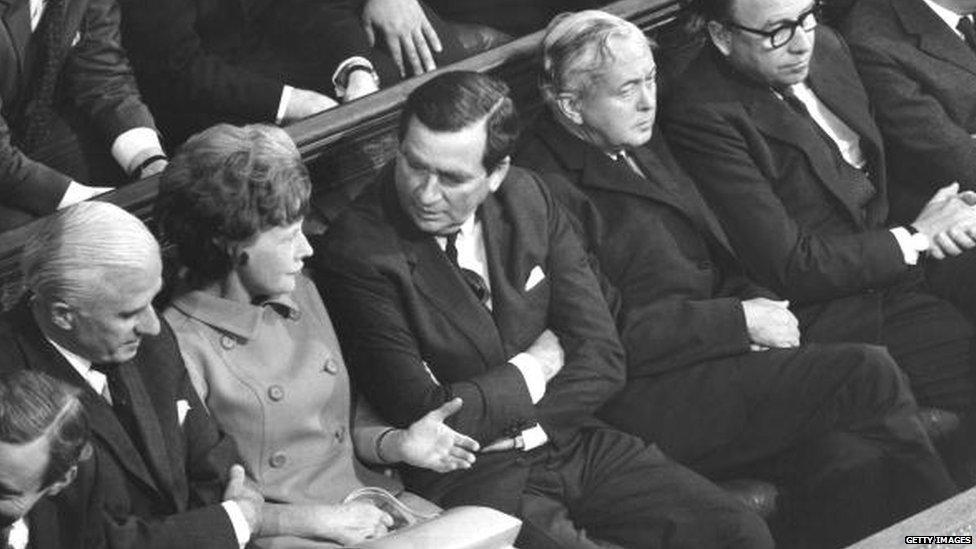
Healey found himself back in opposition after Labour's defeat at the polls in 1970, taking on the role of shadow chancellor.
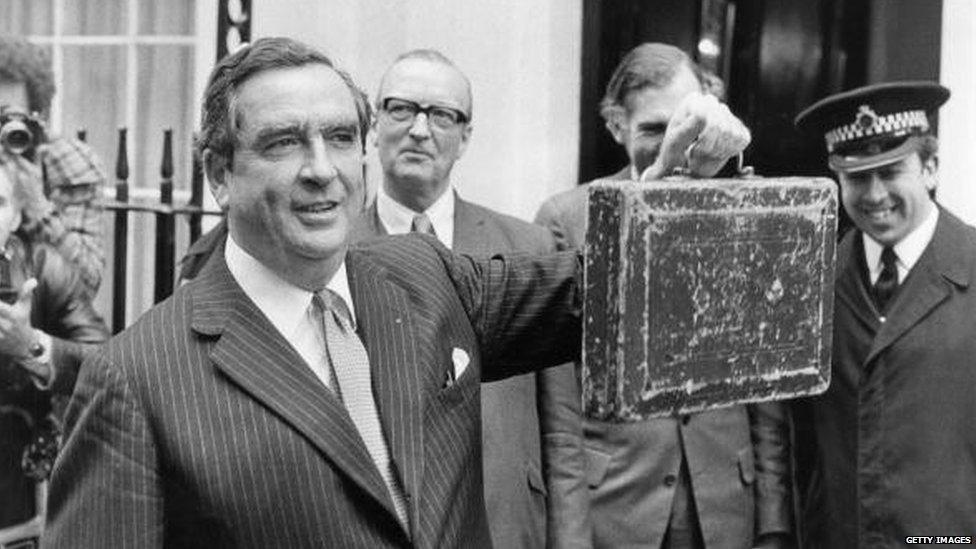
In 1974, with Labour restored to office, Healey was made chancellor, serving in the role until the party's defeat at the hands of Margaret Thatcher in 1979. Just three weeks into the job, Healey presented his first Budget, against a backdrop of economic instability.
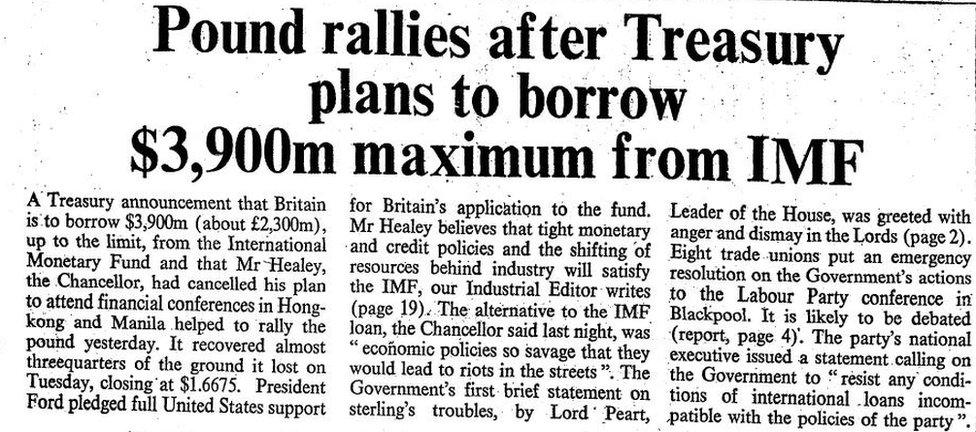
In what was arguably the most defining moment of his political career, Healey was forced to apply for an emergency loan from the International Monetary Fund to save the faltering pound. He had to abandon a foreign trip to rush back to the party conference in Brighton and urge delegates to accept spending cuts. Heckled throughout the speech by members on the Left angry at terms negotiated with the IMF, he later described it as the most harrowing day of his life.
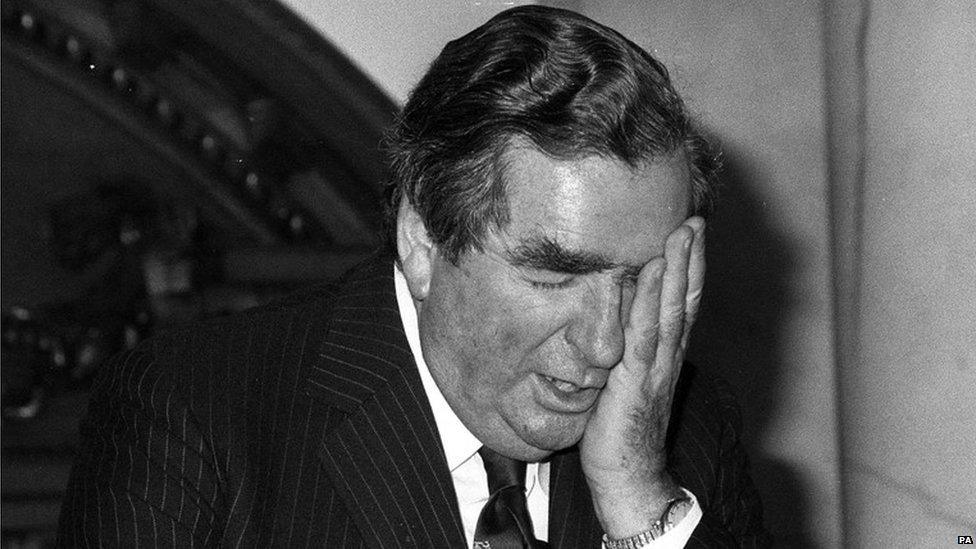
Healey had to implement a package of swingeing public spending cuts demanded by the IMF in return for the £2.3bn bailout, in an emergency mini-Budget in 1976.
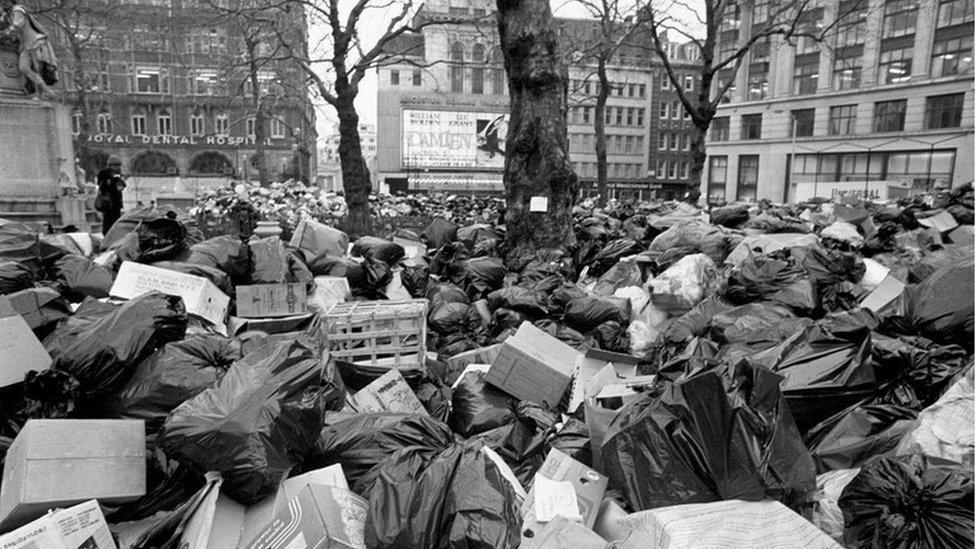
Successive Budget attempts to tackle spiralling inflation and unemployment through public spending cuts led to the "Winter of Discontent", which saw a wave of crippling strikes up and down the country. Rubbish piled up on the streets and the dead went unburied.
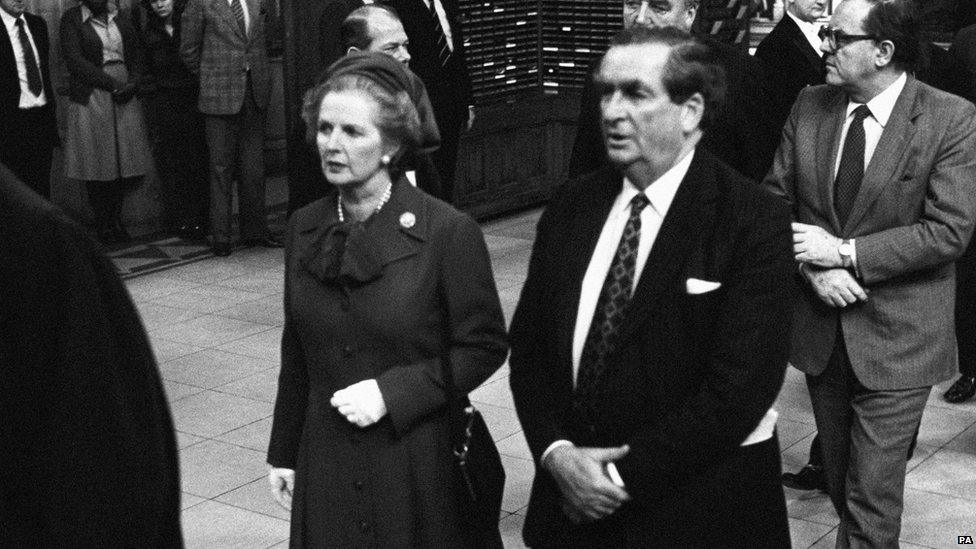
The ongoing economic and political instability helped sweep Margaret Thatcher to power as Conservative prime minister in 1979, consigning Healey to opposition once more.
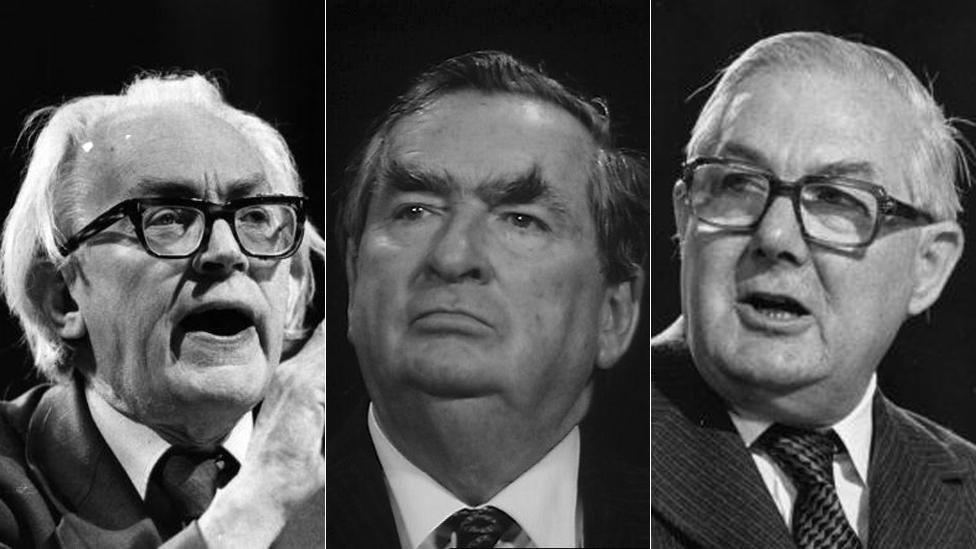
He twice failed to become leader of the Labour Party, defeated by James Callaghan in 1976 following Harold Wilson's resignation, and narrowly losing out to Michael Foot in 1980.
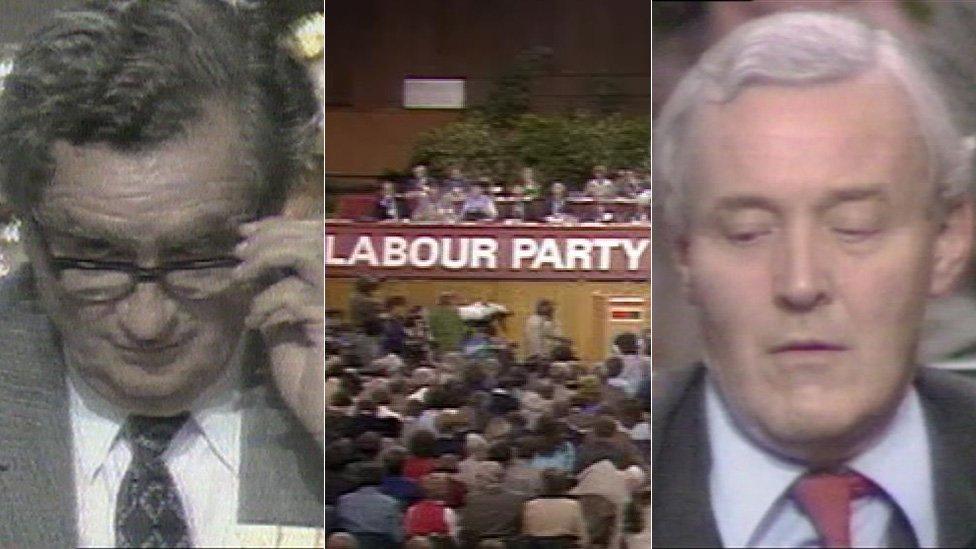
In 1981, Healey saw off a challenge by veteran left-winger Tony Benn to become deputy leader, winning by a margin of less than 1%. The contest caused deep divisions within the party and Healey found himself at war with Labour's left wing.
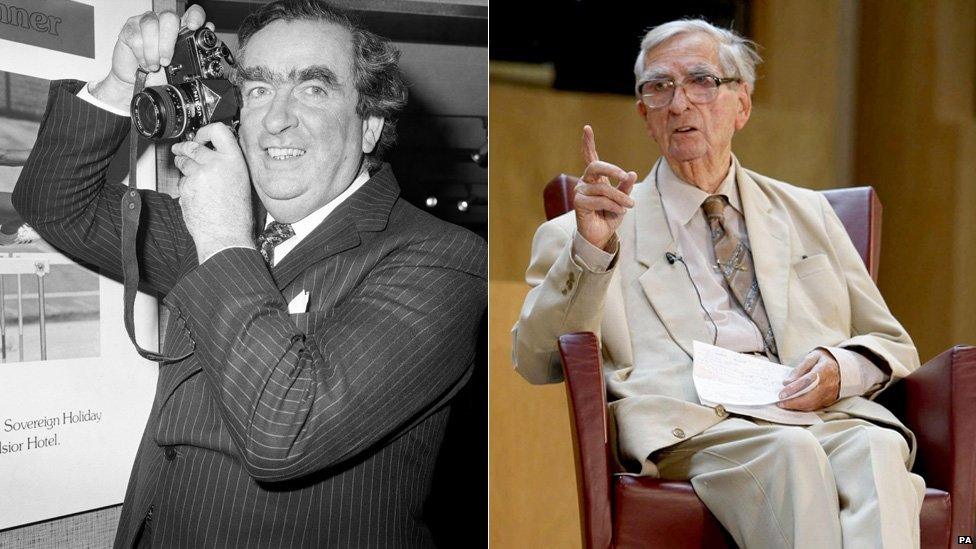
Outside politics, Healey had a love of poetry, literature and music, which he famously described as his "hinterland". Also a keen writer, he penned a well-received autobiography and involved himself in public speaking long after his retirement.
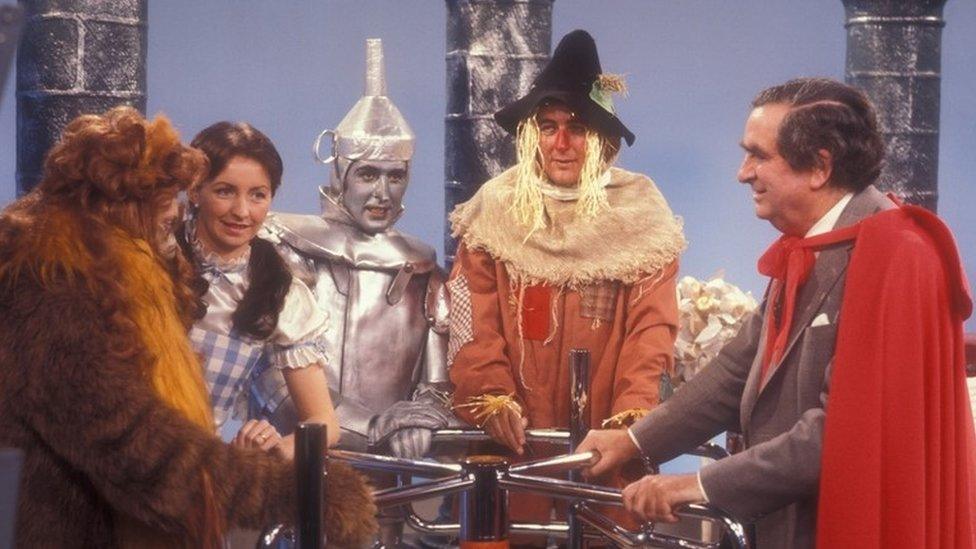
His trademark bushy eyebrows, colourful turn of phrase and sharp mind made him a familiar TV figure, starring as the Wizard of Oz in a Christmas pantomime for the BBC's Nationwide programme. He was also a favourite target for impressionists, most notably for Mike Yarwood, who coined Healey's "Silly Billy" phrase.
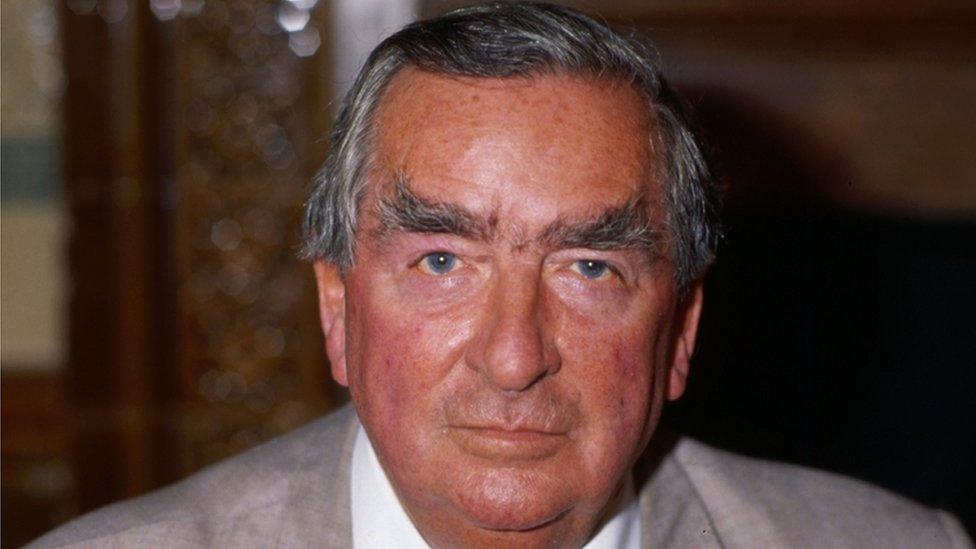
Following a Commons career that spanned nearly 40 years, Healey stepped down as the MP for Leeds East at the 1992 election and joined the House of Lords, adopting the title Lord Healey of Riddlesden.
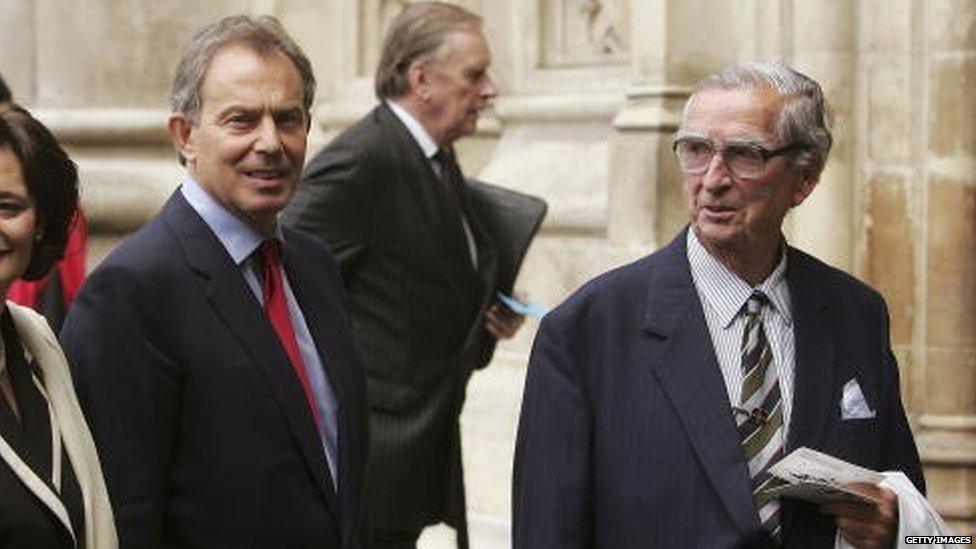
Healey would go on to support Tony Blair in his bid to become the leader of the Labour Party, achieved in 1994. But he would later call for him to step aside for Gordon Brown.
- Published3 October 2015
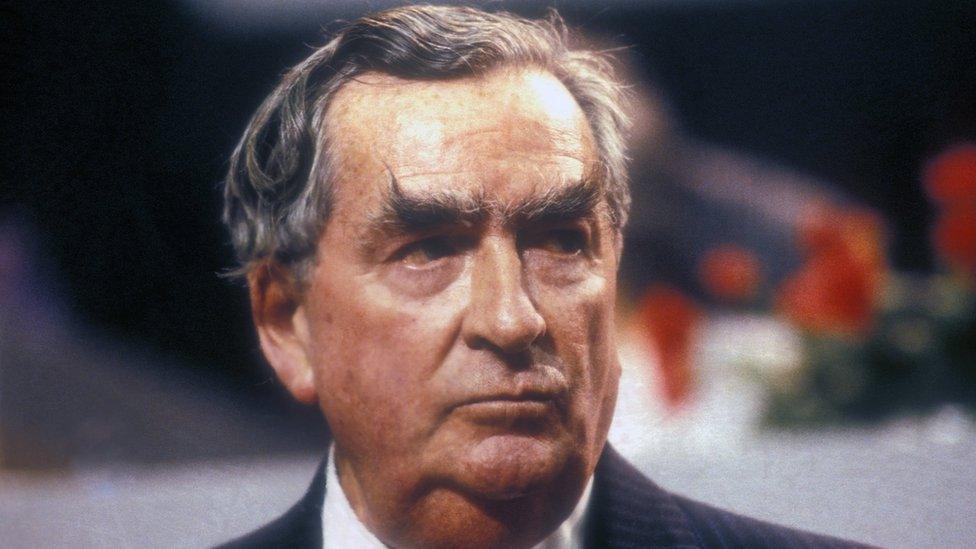
- Published3 October 2015
